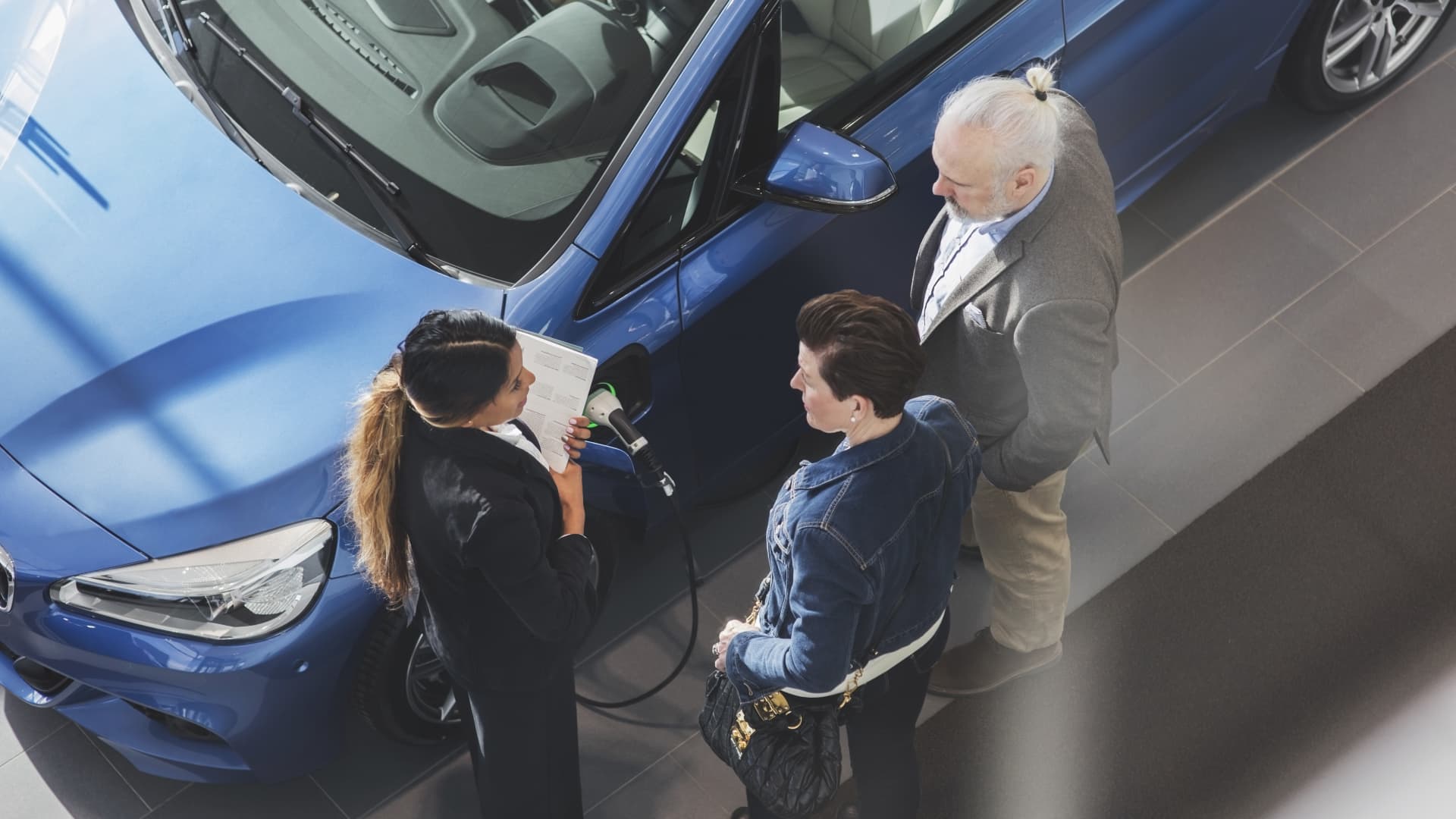The bulk of Americans buying qualifying new electric vehicles are opting to receive an associated tax credit upfront from the car dealer instead of waiting until tax season, according to new Treasury Department data.
About 90% of consumers who qualify for a “new clean vehicle” tax credit — worth up to $7,500 — have requested their tax break be issued as an advance payment, according to a Treasury Department official speaking on background.
Advance payments are a new, optional financial mechanism created by the Inflation Reduction Act, which President Biden signed in 2022.
They allow dealers to give an upfront discount to qualifying buyers, delivered as a partial EV payment, down payment or cash payment to consumers. The IRS then reimburses the dealer.
Not everyone will necessarily qualify for the full $7,500, depending on factors like the type of car that’s purchased.
The advance-payment provision kicked in Jan. 1.
Previously, all EV buyers had to wait until tax season the year following their purchase to claim tax credits related to that purchase, meaning they may wait several months or longer for their tax break.
Additionally, because the clean vehicle credit is nonrefundable, households with low annual tax burdens may not be able to claim the tax break’s full value on their tax returns. That’s not the case with advance payments: Eligible buyers get their full value regardless of tax liability.
Advance payments are also available for purchases of used EVs. The so-called “previously owned clean vehicle” credit is worth up to $4,000.
Car dealers have filed about 100,000 time-of-sale reports for new and used EVs to the IRS since Jan. 1, which signal a consumer qualifies for a tax break, according to the Treasury official.
The Treasury has issued more than $580 million in advance payments since Jan. 1, the official said.
“Demand is high four months into implementation of this new provision with American consumers saving more than half a billion dollars,” Haris Talwar, a Treasury spokesperson, said in a written statement.
Caveats to advance payments
Of course, there are some caveats to the advance payments. For one, not all car dealers are yet participating.
More than 13,000 dealers have so far registered with the IRS Energy Credits Online portal to facilitate these financial transfers to consumers. That number is up from more than 11,000 in early February.
For context, there were 16,839 franchised retail car dealers in the U.S. during the first half of 2023, according to the National Automobile Dealers Association. There are also roughly 60,000 independent car dealers, though they largely sell used cars, according to a 2021 Cox Automotive estimate. Not all these franchises or independent dealers necessarily sell EVs.
More from Personal Finance:
3 signs it’s time to refinance your mortgage
What Biden’s new student loan forgiveness plan means for your taxes
Why the Fed is in no rush to cut interest rates in 2024
Additionally, not all EVs or consumers will qualify for a tax break.
The Inflation Reduction Act has manufacturing requirements for new EVs — meant to encourage more domestic production — that temporarily limit the models that qualify for a full or partial tax credit.
There are 36 new EV models currently available for a tax break in 2024, according to U.S. Energy Department data as of March 18.
Manufacturers of those models include Acura, Audi, Cadillac, Chevrolet, Chrysler, Ford, Honda, Jeep, Lincoln, Nissan, Rivian, Tesla and Volkswagen. Some models qualify for half the tax credit — $3,750 — instead of the full $7,500.
Cars and buyers must meet other requirements, too, which include income limits for households and thresholds on EV sticker price.
